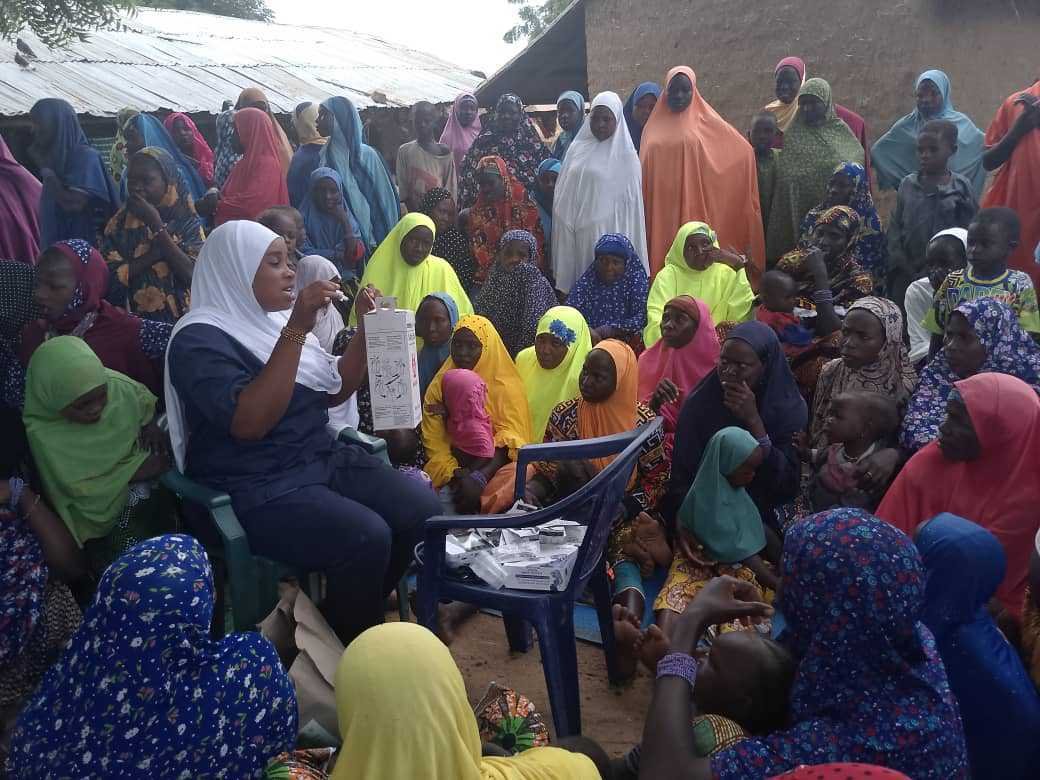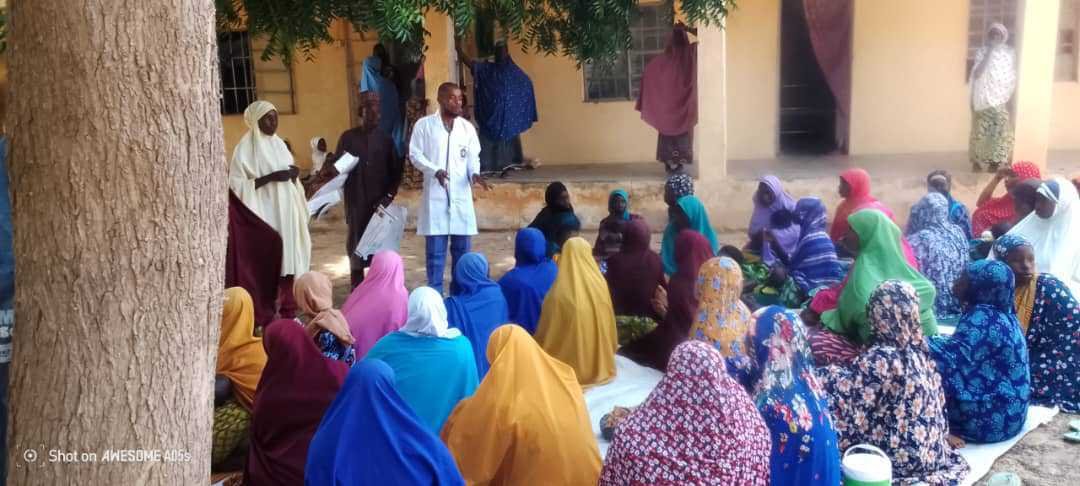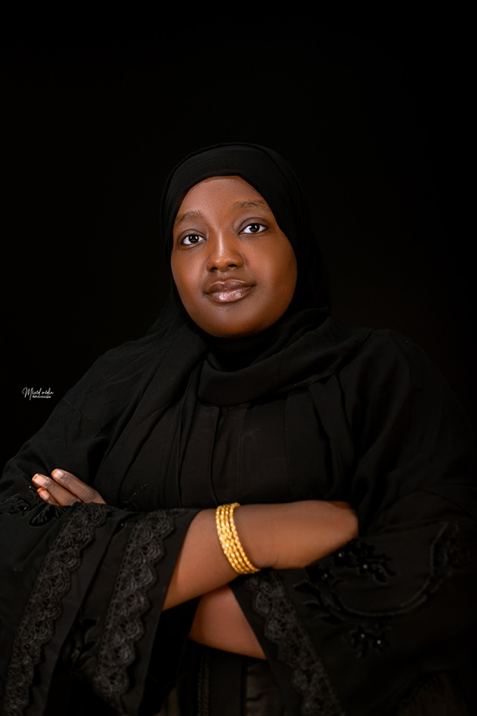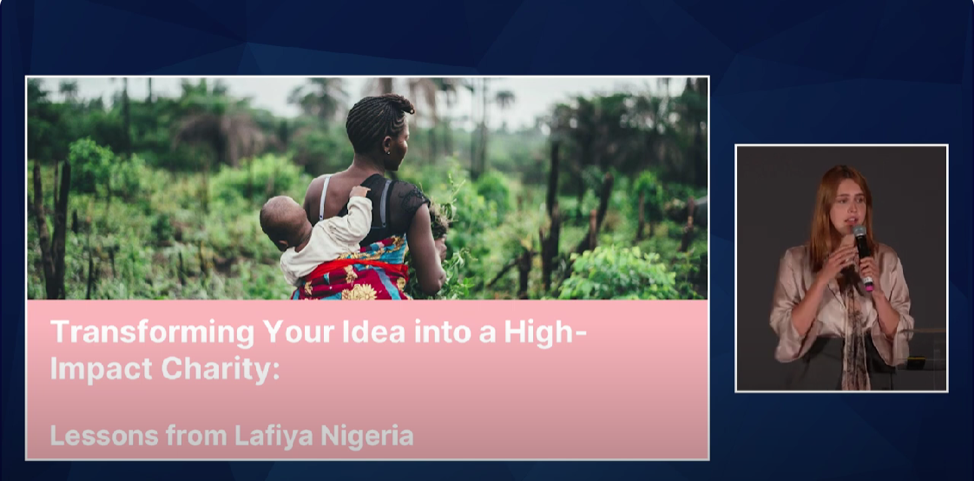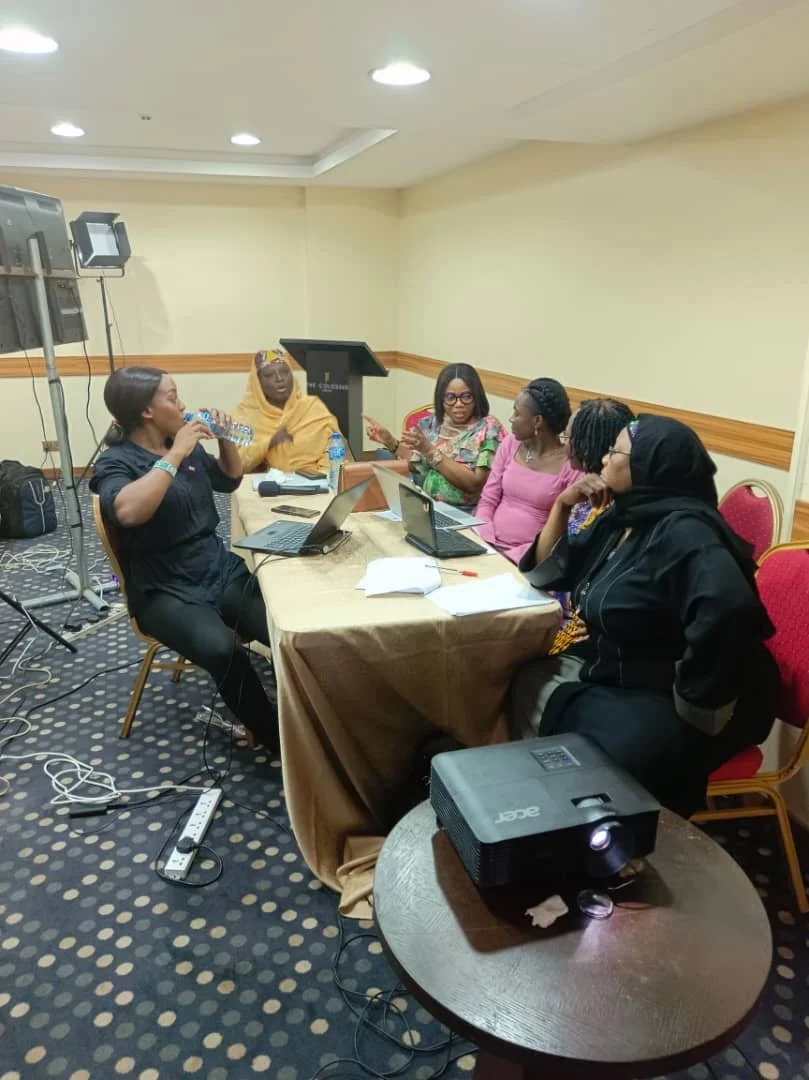Lafiya’s Summer of Impact
Dear friends, supporters, and donors of Lafiya Nigeria,
After a busy quarter and a productive summer, the Lafiya Nigeria team is so excited to announce a range of successes and new opportunities. Most notably, we have reached a historic milestone in our reach and we are preparing to expand into Kano state. Simultaneously, we have contributed to national policy workshops, and have undergone an independent review of our cost-effectiveness.
50,000 doses of Sayana Press distributed
We have come so far in our impact journey. As you may remember, in 2022 when Lafiya began its program, we distributed 2,400 doses of Sayana Press to rural communities in a six-month timeframe in Jigawa State. Now we have officially crossed over 50,000 doses distributed to tens of thousands of women across Jigawa, Kebbi, and Sokoto. But we know this is not just a statistic for us. We have over the two years seen our Lafiya Sisters reach out to communities off the grid and not registered in the healthcare system, as well as empower women like Jamila to realise their options. We are proud of our impact and are sure it will only continue to grow, especially as we expand our operations across the country.
Jamila’s story is familiar to Lafiya, because our Lafiya Sisters are aware of the community pulse. We have attached a few photos from recent community outreaches that are so vital to our community linkage. Our Lafiya Sisters frequently embark upon visits in communities where they reside, so that we can reach women who may not be able to reach our Lafiya Sisters in facilities. These photos are taken in wards and settlements in Dandi (Kebbi State), in Wamakko (Sokoto State), and in Kargo (Jigawa State).
Hasiya and Amina joining our team to scale operations in Kano
We are also pleased to announce two newest members to our team, based in Kano state, Hasiya Kabir Ahmed and Amina Sabiu.
Hasiya started off her career like many of our Lafiya Sisters, as a registered midwife. A public health graduate, she has 9 years of experience in Reproductive Maternal Newborn and Child Health services (RMNCH), specialising in quality improvement, mentoring and monitoring of primary healthcare centres and secondary healthcare facilities to improve the quality of care. This makes her an excellent mentor to the Lafiya Sisters.
Amina is a trained epidemiologist and a professional in global maternal and child health. With 4 years of experience and a proven track
record in effectively managing projects in malaria and immunisation, she has developed skills in stakeholder management, effective communication and leadership. Their shared experience in maternal and child health makes them ideal candidates for our expansion to Kano.
The entire Lafiya team is tremendously excited to bring our model to Kano, the largest state by population in the country and the pride of Hausa Northern Nigeria. There is much for us to accomplish, and we expect to bring you more updates about our programme in Kano beyond these first steps in our footprint.
Hasiya Kabir Ahmed
Amina Sabiu
Representation at EA Global Conference in London about our journey
At the start of June, Klau, our co-founder and co-executive director was invited to speak at the Global Effective Altruism conference held in London. It was a great opportunity to connect with other new and emerging charities, as well with a roster of mission-aligned funders and ecosystem players. Klau shared with the audience Lafiya’s unconventional path to scale, starting from their work in Nigeria with the Federal Ministry of Energy in 2018, with a moving illustration of how they saw the lack of family planning options as a fundamental barrier to women's autonomy over their lives. Klau then recounted how our team persisted in working on family planning and how early supporters like our first private donors (which include many of you reading), D-Prize and Charity Entrepreneurship helped support our growth in each step, such as welcoming Céline to the team or striking key partnerships with organisations like Marie Stopes International and with Federal and State Ministries of Health.
Lafiya was in attendance at the federal ministry technical working group and DMPA-SC/Self-injection scale up national policy setting meeting
While Klau was presenting our work in London, our co-founders Dr. Fatima and Nasiru represented Lafiya in attendance of the Federal Ministry Technical Working Group on family planning, as well as a DMPA-SC/Self-Injection Expansion and Sustainability national policy-setting meeting. We were able to significantly contribute to the policy discussion with our deep expertise of working with and serving women with the highest unmet need in rural and hard-to-reach areas.
As a result, we played a role in developing the National DMPA-SC & Self-Injection Expansion and Sustainability Strategy for 2024-2030. This strategy will prioritise policy and advocacy efforts, mobilise resources for implementing the TSTS policy, and support other national-level strategies. It aims to establish additional service delivery points across public and private health sectors, thereby enhancing domestic resource mobilisation. The strategy will also strengthen knowledge management, with continuous generation of evidence through research, monitoring, and supervision. This will inform learning, planning, decision-making, and information sharing. Furthermore, government-led coordination mechanisms have been established to guide these efforts, ensuring coordinated expansion, nationwide coverage, and the achievement of the target for self-injection to contribute 30% of the overall injectable contraceptive uptake.
Dr Fatima (Left 2) amongst peers at the DMPA-SC/Self-Injection Expansion and Sustainability national policy-setting meeting.
Cost-effectiveness report from Rethink Priorities
We are excited to announce the promising projections of our cost-effectiveness model, independently. Recent research and modelling by the implementation group Rethink Priorities suggest that we may currently avert one DALY for approximately $5 USD, with projections indicating this figure could drop to $2 USD by the end of 2025.
Similarly, their analysis estimates that the cost of saving a life, now around $393, might decrease to $148 by the same time.
This research model shows that our intervention is about 20 times more cost-effective than unrestricted cash transfers and could be up to 53 times as effective by late 2025.
We are encouraged that our cost-effective strategies such as hiring experienced healthcare providers, leveraging existing family planning training programs, leveraging previous investments and utilising Sayana Press, are yielding positive results.
Read the full report here
Our ask to the community: UNGA/NY Climate Week Connections!
The Lafiya team is coming to New York City. between Sep 20 and 28th for UNGA. If there are any ecosystem players/changemakers/funders in maternal heatlh, please let us know!
Thank you for your support and encouragement, always!
Klau, Céline, Dr Fatima, Jefferson, and Nasiru

